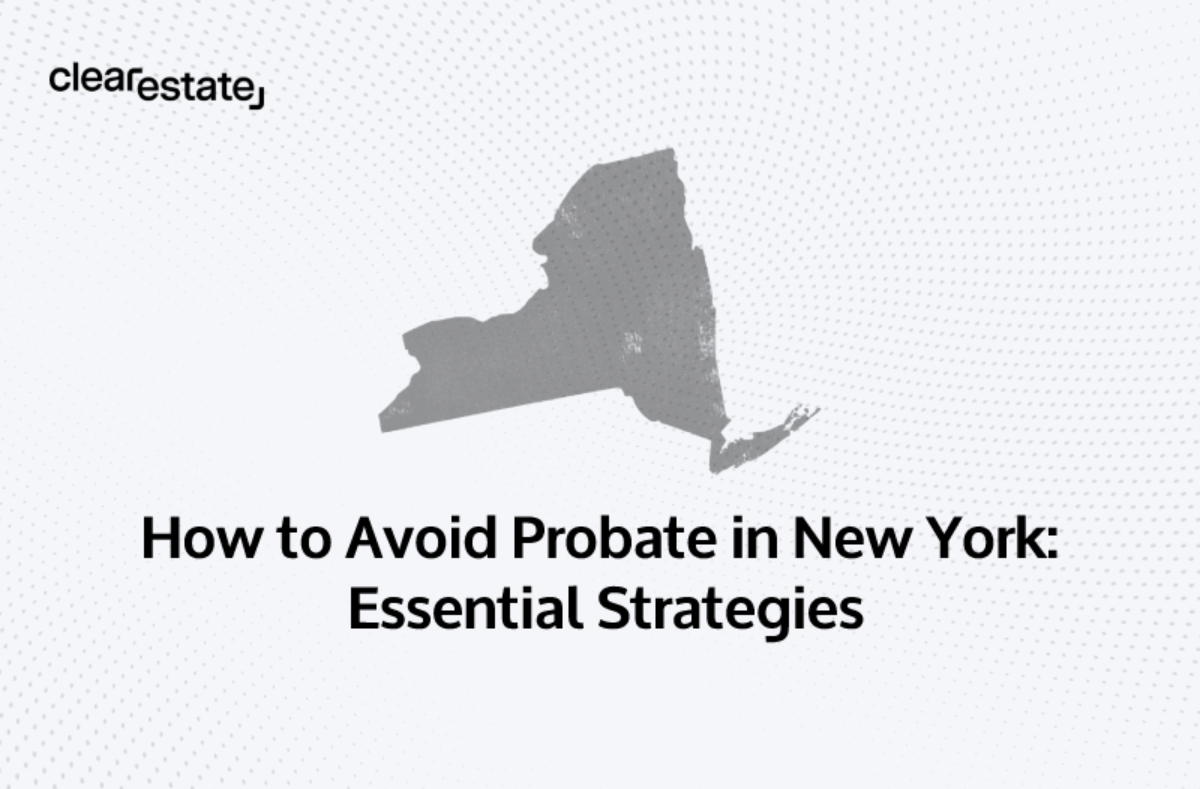This section is not meant to overwhelm you, but to inform you on how grueling the probate process actually is.
The following provides an outline of the probate process:
-
Petition Filing: Initiate the estate proceeding by filing a petition to open the estate.
-
Notice To Creditors and Heirs: Inform all relevant parties of the decedent's passing and the probate process.
-
Inventory and Evaluation: All assets, including types of assets like real estate and personal property, are inventoried and appraised.
-
Taxes and Debt Repayment: This phase involves settling all debts and taxes.
-
Asset Distribution: Assets are distributed as per the will or intestacy laws.
-
Concluding the Estate: The estate closes when all assets are distributed.
We've also outlined in-detail the probate process in New York in our probate process guide: here
Costs Associated with Probate
Depending on the size and complexity of the estate, New York's probate charges can change. Some of the expenses related to probate in New York include the following:
Filing Costs: Depending on the amount of the estate, the filing costs for probate in New York can range from $45 to $1,250.
Lawyer's Fees: Many probate lawyers bill by the hour, and the rates might range from $350 to $600. As a general rule, overall legal costs are normally equal to the total executor's fee, which is typically equal to 3% of the estate's value.
Executor Costs: The executor's fee/commission is determined by New York State law and is ordinarily equal to 3% of the estate's value. Additionally, executors are qualified to receive compensation for legitimate costs incurred while handling the estate.
Other costs: Other charges related to probate could include court costs, accounting fees, and fees for appraisals.
The probate procedure is time-consuming and expensive, so it's always a good idea to speak with an attorney about ways to avoid or streamline the probate process.
Why Avoid Probate?
The existence, integrity, and legality of a will are frequently the main topics of probate proceedings. People could desire to avoid probate for several reasons:
Financial Implications
There are multiple steps in the probate process, and the costs associated with each one add up over time. Expenses associated with the probate procedure include filing fees, legal charges, personal representative fees, and court costs.
Time Consumption
The probate process, which entails locating the decedent's assets, paying off any debts, and dividing the remaining estate under the will, often takes three to four months to complete. Nevertheless, even a straightforward estate administration may take months longer to settle than usual. In New York - depending how busy the surrogate court is, the typical time to settle an estate is 1-2 years from the decedent's death.
The Emotional Toll on Families
One of the worst things you can go through is losing a loved one. Going through probate court makes your mourning more difficult or even brings up old feelings and family disputes. Access to accounts and resources becomes a concern for you, as does the repayment of obligations on behalf of the deceased and the burden of managing an estate.





